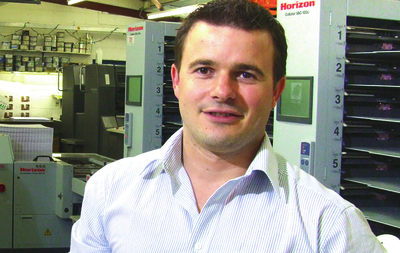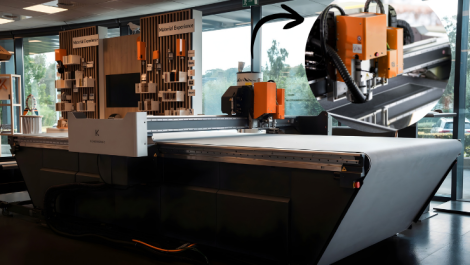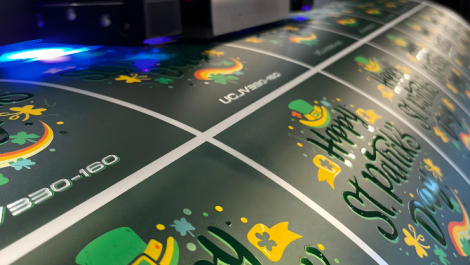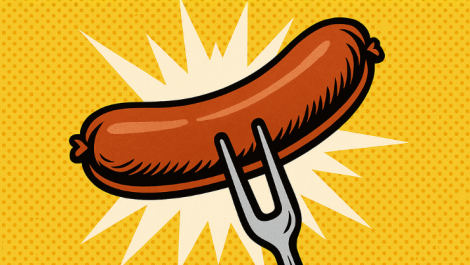The digital press is from Ricoh, much of the finishing equipment from Horizon: Remous in Dorset is doing well with its penchant for Japanese kit.
Alan Bunter has fallen in love with most things Japanese, and it all started with a stitching machine that his company, Remous in Dorset, invested in four years ago.
Strange to say, but true – what followed the Horizon StitchLiner 5500 from IFS into Remous’s factory has been a Komori litho press, a Ricoh Pro C901 digital press, and a raft of additional Horizon post-press kit; Mr Bunter has even cooked Japanese cuisine on the Come Dine With Me TV show, with Japanese martial arts experts helping to keep his guests entertained.
The anecdote is a great one and matches well with the unfailing bonhomie that Mr Bunter exudes as he shows Digital Printer around the £1.4 million turnover company’s site in Milborne Port (the ‘industry epicentre of the south’, he jokes), just outside the larger town of Sherborne.
He runs the company with his father, Graham Bunter, who started the company in 1980. The transition from father to son really started five years ago, when Mr Bunter junior took over the running of production. A year later he started making strategic decisions and handling most of the accounts. There are three directors and they all provide quotes for customers, and they can all run presses if need be.
Growth has been gradual but steady, with turnover having increased by 40% in five years – an achievement that Mr Bunter observes, with some chagrin, has only kept the firm’s profit level about the same.
‘If you’re not growing now you are dead in the water,’ he said. ‘You have to be growing sales turnover and efficiency just to stay where you were. We have geared ourselves to be able to cope with short runs because that’s the way run lengths are going. You’ve got to get it through quickly. The minute you touch it you are losing money.’
The Ricoh was not the company’s first digital press – it started with a Xerox to dip its toe in the water some years ago, and as the digital side of the business grew, it tried another brand that did not work out – but the Pro C901 has provided Remous with some peace of mind, he explained.
‘It has not necessarily allowed us into other markets, but it does the job regularly and consistently without fault, so we have a lot more confidence to go and sell it to customers. We used to cross our fingers and hope the old machine did not break down. Now I have more conviction. We have grown the digital side but we’re trying to streamline it in terms of things like order processing. That’s my next target.’
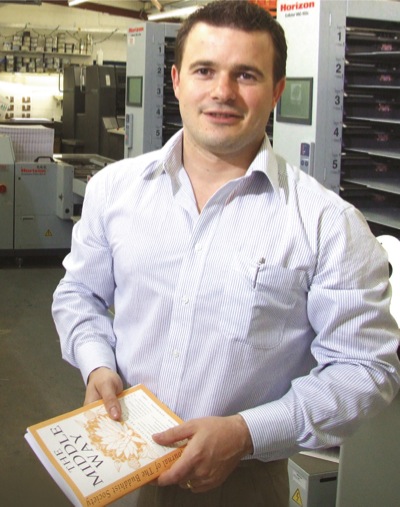 Alan Bunter
Alan Bunter
A new Agfa prepress system will link to the Ricoh. ‘Customers will be able to order online and upload artwork; it will be imposed, straight into the RIP, ready to go; that’s where digital will start to be more profitable.’
The strengths of the Ricoh press are its reliability, consistency, speed (90 pages per minute), ‘excellent’ registration, quality, and ability to print on litho paper stocks. ‘The registration is so good that we can realistically do die-cut folders with tight tolerances. It’s not perfect but it’s a lot better,’ he commented.
While considering itself to be a commercial printer, and willing to give most jobs a go, Remous has particular expertise in books and packaging. This latter avenue has even included some digital work – things like tag labels that it then die-cuts and laminates.
The company’s well equipped finishing department helps in all regards. In the wake of the Horizon StitchLiner came a binder and trimmer from IFS (the Horizon BQ-270 with HT30 trimmer), as well as a Perfecta guillotine and a Foliant laminator. Not from IFS, but doing a sterling job on longer run jobs, is a collating system from UK manufacturer Col-Tec Solutions. ‘We had the finishing firepower there before but it was a lot slower and less efficient,’
Mr Bunter said. ‘Now we have the speed. We can print a book in the morning, 200 x 150 pages, full colour, and they will be done by four o’clock.’
For the future, he is interested in the B2 digital technology that was shown at drupa, saying that ‘for a company like us that could change at everything’. There was a particular future technology that caught his eye there, and if it works at the stated speed (8000 sheets per hour), and is reasonably priced, why would a company of Remous’s size and work profile not go for such a press, he pondered. The manufacturers? Ryobi and Miyakoshi of Japan, of course.
